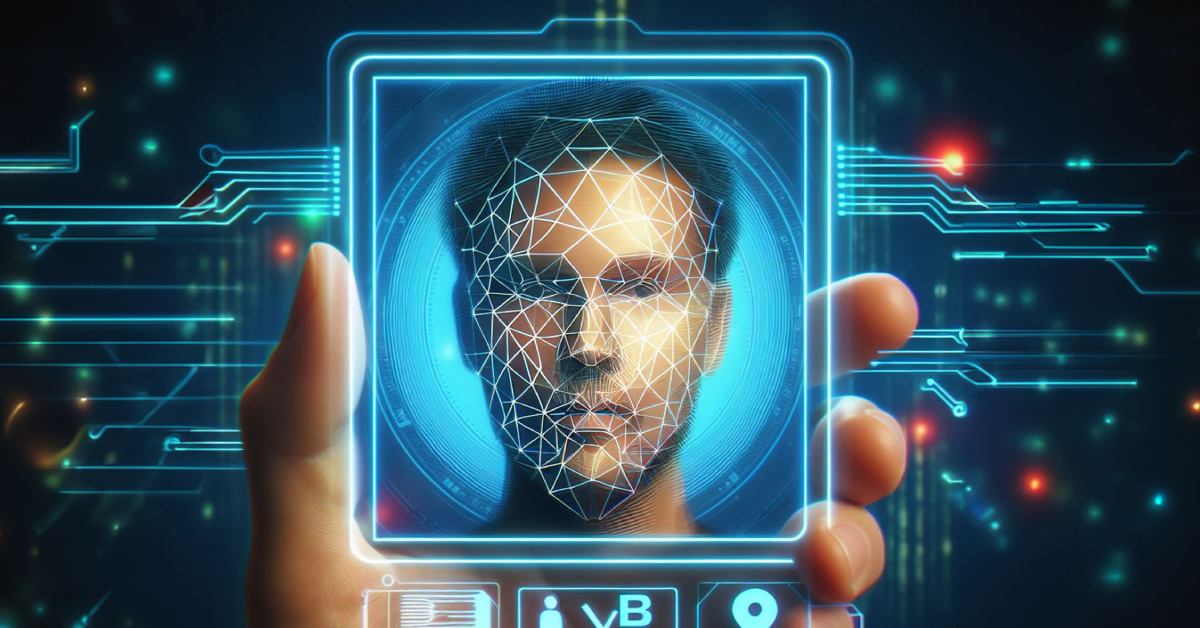Blockchain for authentication and verification of self-sovereign digital identity: how to own your digital identity
What is self-sovereign identity?
Imagine that you could have a digital identity that was yours alone, that did not depend on any company, government, or institution, and that you could use it to access all kinds of online services, from borrowing money to voting in elections.
Imagine being able to create, store, manage and share your personal data, such as your name, your age, your nationality, your studies, your health certificates, etc., freely, without having to give more information than necessary, nor having to rely on intermediaries who can use it without your consent.
Imagine if you could have a way of identifying yourself and signing documents that was as secure and truthful as your ID card or your handwritten signature, but that was digital and that you could use it from any device, at any time and place.
Does this sound like utopia? Well, it is not. This is called self-sovereign identity (SSI), and it is a revolution for digital trust.
Self-sovereign identity is a concept that proposes that each person is the owner of his or her own digital identity and can manage it autonomously, without depending on intermediaries or centralized authorities.
To make this possible, tools called verifiable credentials are used, which are digital documents containing information about a person's identity, issued, and signed by a trusted entity, such as a government, university, bank, company, etc.
These verifiable credentials are stored in a digital wallet, which is an application that allows the person to access their credentials and share them with whomever they want, whenever they want and only what they want, respecting their privacy and security. The technology that makes SSI and verifiable credentials possible is Blockchain, a decentralized network that records and verifies transactions immutably, transparently and without intermediaries.
What are verifiable credentials?
Verifiable credentials are the foundation of self-sovereign identity, as they are the digital documents that allow you to prove who you are and what you can do. Think of all the credentials you have in your life: your ID card, your passport, your driver's license, your academic degrees, your work certificates, your medical prescriptions, and so on.
All these credentials help you identify yourself, access services, exercise your rights, apply for benefits, etc. But they also have some disadvantages: they can get lost, deteriorate, expire, be forged, etc.
When you use them in the digital world, you have to trust that the entity that asks for them will treat them properly, and that it will not use your data for other purposes or share them with third parties without your permission. You often have to give more information than you really need, for example, when you register on a website and they ask for your date of birth, your address, your phone number, etc., when they just want to verify your identity.
Verifiable credentials solve these problems, since they are digital documents that contain information about a person's identity, issued and signed by a trusted entity, such as a government, university, bank, company, etc.
These verifiable credentials are stored in a digital wallet, which is an application that allows the person to access their credentials and share them with whomever they want, whenever they want and only what they want, respecting their privacy and security.
If you want to rent a car, for instance, you can share your verifiable driver's license credential, without having to show your ID or credit card. Or if you want to apply for a job, you can share your verifiable college degree credential, without having to send a paper copy or PDF. Or if you want to vote in an election, you can share your verifiable citizenship card, without having to go to a polling station or use a voting machine.
Verifiable credentials have many advantages over traditional credentials, both for individuals and organizations. These advantages are:
- Reduce the friction and costs of identification and verification processes by eliminating the need for intermediaries, paperwork, duplication and waiting times.
- Increase the trust and security of digital transactions by ensuring the authenticity, integrity and traceability of verifiable credentials and electronic signatures.
- Empower individuals to own their digital identity and manage it autonomously, without relying on third parties or relinquishing their privacy.
- They facilitate access to digital services by allowing people to use their verifiable credentials to identify themselves and access different platforms and applications, without the need to create multiple accounts or passwords.
- Promote digital inclusion and participation by giving people the ability to obtain and share verifiable credentials that prove their identity, skills, rights, and achievements, regardless of their background, situation or context.
What is the role of Blockchain in SSI and verifiable credentials?
Blockchain is the technology that makes SSI and verifiable credentials possible, as it is a decentralized network that records and verifies transactions immutably, transparently and without intermediaries. It works like a digital ledger, where each transaction is recorded as a block, which is linked to the previous block, forming a chain. Each block has a unique code, called a hash, which identifies it and protects it from tampering.
Each block is also copied and distributed to several nodes, which are computers connected to the network that validate and agree on the transactions, without the need for a central authority.
Blockchain guarantees that the information recorded is truthful, secure and accessible to all participants.
Blockchain is the ideal support for SSI and verifiable credentials, as it allows the creation, storage, control and sharing of a person's digital attributes, without relying on intermediaries or centralized authorities. It also allows for the generation and verification of electronic signatures of verifiable credentials, using unique identifiers, called DIDs (Decentralized Identifiers), which are associated with each person and each entity issuing or verifying credentials.
DIDs function as a kind of address or public key, which is used to sign and encrypt verifiable credentials, and which is stored in Blockchain, along with the information needed to verify the signature. In this way, Blockchain guarantees that the verifiable credentials are authentic, integral and traceable, and that they can only be accessed by authorized persons or entities.
How does ISS relate to the eIDAS2 regulation?
The eIDAS2 regulation is a European Union regulation that aims to provide electronic identification and trust services in the digital single market. The eIDAS2 regulation recognizes the legal validity of electronic signatures, electronic seals, electronic time stamps, certified electronic delivery services and website authentication certificates.
The eIDAS2 regulation recognizes the legal validity of electronic signatures, electronic seals, electronic timestamps, certified electronic delivery services, and website authentication certificates.
eIDAS2 also establishes a framework for interoperability of the electronic identification systems that enable citizens and businesses to access public and private services safely and easily online.
SSI and verifiable credentials are aligned with the objectives and principles of the eIDAS2 regulation, as they offer a form of electronic identification that respects the sovereignty, privacy, and security of individuals, and can be recognized and accepted by entities providing trusted services in the digital domain. In addition, SSI and verifiable credentials are based on open standards and interoperable technologies, such as Blockchain, which facilitate integration and cooperation between the different players in the digital identity ecosystem.
SSI and verifiable credentials can therefore be considered as an evolution and improvement of current electronic identification systems, which are better adapted to the needs and expectations of individuals and organizations in the digital world.
How does Fundación Telefónica use verifiable credentials?
Fundación Telefónica, as an entity committed to education and innovation, has decided to use verifiable credentials as a way to recognize and value the learning and development of people. Fundación Telefónica has thereby announced that it is going to accredit the nanodegrees it awards together with the CEOE on blockchain, and also issue them as verifiable credentials thanks to TrustOS.
These are free online training programs to digitally empower professionals from different sectors. The use of TrustOS makes it possible to guarantee the veracity and authenticity of the information, as well as the digital and secure issuance of the titles, which can be verified with a QR code.
Titles will also be issued as verifiable credentials, in a format compatible with the future European digital identity ecosystem, allowing citizens to identify themselves to public institutions or digital service providers with their approved digital wallet.
Nanodegrees are a form of flexible, personalized learning, tailored to market demands, based on the acquisition of specific knowledge and skills, which can be combined and complement each other. The nanogrades are taught through digital platforms, which offer quality content, active methodologies, personalized tutoring, and continuous assessment.
These certifications are aimed at people who want to improve their employability, update their skills, or change their professional career, as well as companies that want to train and retain their talents. They cover different areas of knowledge, such as programming, Cyber Security, Artificial Intelligence, digital marketing, etc.
Fundación Telefónica, by issuing nanodegrees as verifiable credentials, offers people a way of accrediting their training that has the following advantages:
- It is digital, so it can be stored, managed, and shared from a digital wallet, without the need for physical documents or attachments.
- It is verifiable, so you can check its authenticity, integrity, and traceability, using Blockchain, without the need for intermediaries or bureaucratic processes.
- It is selective, so you can choose what information you want to share, with whom and when, respecting the privacy and consent of the individual.
- It is recognized, so it can be used to access other training, employment or social offers that accept verifiable credentials as a form of identification and validation.
- It is inclusive, so it can be obtained and shared by anyone, regardless of their origin, situation, or context, favoring equal opportunities and digital participation.
Accreditation with blockchain makes Fundación Telefónica one of the pioneering institutions in the European Union when it comes to issuing degrees in this format, favoring the employability and international mobility of professionals who complete the nanodegrees.
Fundación Telefónica makes it easier for people to demonstrate their training and skills easily, securely, and truthfully, and to access new job and social opportunities in the digital world by issuing nanodegrees as verifiable credentials.
In this way, Fundación Telefónica places itself as an innovative, socially responsible entity committed to education and digital transformation.
 Hybrid Cloud
Hybrid Cloud Cyber Security & NaaS
Cyber Security & NaaS AI & Data
AI & Data IoT & Connectivity
IoT & Connectivity Business Applications
Business Applications Intelligent Workplace
Intelligent Workplace Consulting & Professional Services
Consulting & Professional Services Small Medium Enterprise
Small Medium Enterprise Health and Social Care
Health and Social Care Industry
Industry Retail
Retail Tourism and Leisure
Tourism and Leisure Transport & Logistics
Transport & Logistics Energy & Utilities
Energy & Utilities Banking and Finance
Banking and Finance Smart Cities
Smart Cities Public Sector
Public Sector





